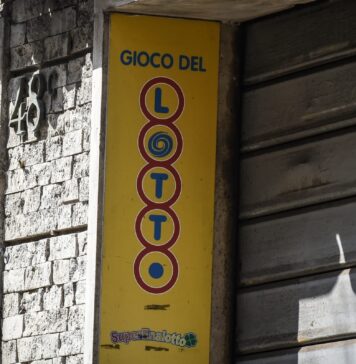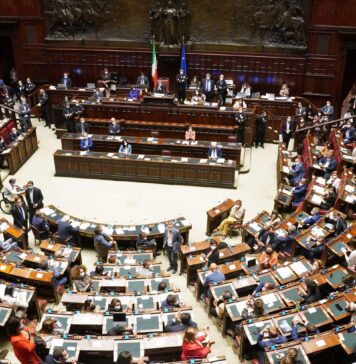The Regional Administrative Court for Lazio (Fourth Section) accepted - through a ruling - the appeal presented by a company against the Communications Authority, which requested the annulment of "the ordinance-injunction contained in resolution no. . 19/23/CONS of 8 February 2023 against the company (...) for the violation of the regulatory provision contained in art. 9 of the legislative decree of 12 July 2018, n. 87 converted with law 9 August 2018, n. 96 (so-called dignity decree); of the report of the GdF, Goods and Services Unit of 15 July 2022 prot. 219728 currently not known; of the AGCOM note prot. 487112 of 1 June 2022 currently not known; of the GdF's assessment report which is currently unknown; of the complaint no. 13/221DSDI proc. 15/FDG with pre-investigation activity carried out on 21 September 2022 prot. n. 271696, currently unknown".
Below is the text of the sentence: “The appellant requested the annulment of the injunction order contained in resolution no. 19/23/CONS of 8 February 2023, issued against you for the violation of the regulatory provision contained in the art. 9 of the legislative decree of 12 July 2018, n. 87 converted with law 9 August 2018, n. 96 (so-called dignity decree), together with the other measures listed in the epigraph, requesting their annulment on the basis of the following reasons:
1. Violation and false application of art. 97 of the Constitution –– Violation and false application of articles. 1, co. 2a; 3 and 7 L. 241/90 – Violation and false application of art. 5 Procedural regulation regarding sanctions, annexed to resolution no. 410/14/CONS, of 29 July 2014, as amended by resolution no. 437/22/CONS AGCOM – Violation and false application of art. 16 L. 689/81. Excess of power: absolute lack of investigation; manifest illegitimacy; manifest injustice; lack of factual and legal conditions.
2. Violation and false application of art. 97 of the Constitution Violation and false application of articles. 1 l. 241/1990. Violation and false application of art. 9 DL 87/2018. Violation and false application of AGCOM Resolution 132/19/CONS. Excess of power: Absolute lack of investigation, misrepresentation of facts; manifest injustice; manifest illogicality.
2. The Communications Authority appeared in court with a brief filed on 3 June 2023, requesting the complete rejection of the appeal.
3. At the hearing on 8 November 2023, the case was held for decision.
4. The appellant explains that on 23 March 2023, resolution no. was notified to her. 19/23/CONS of 8 February 2023, which contained the payment order for 50.000,00 euros (fifty thousand/00 euros) to be paid by (...), for the violation of the provisions contained in the art. 9 legislative decree 12.7.2018 n. 87.
Note that on page 3 of the aforementioned resolution, reference is made to complaint no. 13/22/DSDI, proceed. n. 15/FDG of 21.09.2022, allegedly also communicated to the same appellant.
However, he complains about the failure to communicate the aforementioned dispute which precluded him from paying a reduced amount of the fine, criticizing the consequent illegitimacy of the injunction.
In support of the aforementioned illegitimacy, the appellant pointed out that during the access phase it had not obtained any proof of notification of the disputed provision.
In light of the aforementioned deductions, the Authority limited itself to claiming that it had notified the disputed provision, producing in court a notification report where the Authority official claims to have notified the aforementioned document by registered mail and e-mail, together with a postcard bearing the wording “recipient unknown".
With a further reason the appellant contests the illegitimacy of the sanctioning measure, criticizing its illogicality and lack of investigation.
5. The appeal is founded in terms of the failure to communicate the provision to initiate the sanctioning procedure, given the failure of the Authority to demonstrate notification of complaint no. 13/22/DSDI, proceed. n. 15/FDG of 21.09.2022.
5.1. With reference to the failure to notify via registered mail, the Authority limited itself to filing a return receipt sent but not delivered to the appellant's address as it contained the words "the recipient is unknown".
The i derives from itnvalidity of the notification of the disputed document which therefore appears not to have achieved its purpose, as it is not known in any way by the recipient, not even in a merely formal way, as happens in the event of a registered letter being completely in storage"In fact, as stated by jurisprudence in relation to cases of similar content (Cass. Civ., Section I, order dated 27 January 2022, n. 2530), in terms of notifications pursuant to 143 cpc, it is not sufficient, for the purposes of the positive assessment of the unavailability of the recipient of the notification, the mere failure to find the name of the person being notified on the intercoms or even on the post office boxes, a quid pluris is still required which must at least consist in the collection, by the judicial officer, of specific information on site on the recipient of the document by the residents interviewed.
A concrete investigation into the use of common diligence by the notifier is therefore necessary in order to consider a notification validly carried out pursuant to art. 143 cpc, given that the conditions that legitimize this procedure are not represented by the sole subjective fact of ignorance regarding the residence, abode or domicile of the recipient of the document, it being also required that such ignorance be objectively blameless, i.e. that it cannot be overcome through the investigations suggested by ordinary diligence (on this point, see Council of State, III, 10 July 2013, n. 3712)” (see TAR Sicilia, Catania, n. 981 of 2023).
Having said this, in this case, the postal officer limited himself to affixing the words "address unknown” without carrying out the aforementioned investigative activities, the notification of the aforementioned provision to the sanctioned person cannot be considered validly carried out.
5.2. Furthermore, no proof of communication has been provided with reference to the notification via certified mail. In fact, the Authority did not deposit the relevant certified email file (.xml) or other suitable document to prove the delivery of the package and its contents, citing the impossibility of notifying the appellant's certified email address caused by the failure of the same to comply with the obligation to obtain a PEC address that can be known to third parties.
However, the Board believes that the alleged failure to comply with the aforementioned obligation which moreover would concern mere communication to the company register and not to the INIPEC register, cannot exempt the Authority from the obligation to notify the dispute provision in another way.
In conclusion, the general obligation to communicate the initiation of the sanctioning measure, enshrined, in a general way, in the provisions of the law, has been violated. 241/90 (articles 1, co. 2 bis and 7), and specifically, as regards the procedure de quo, from the art. 5 Procedural regulation regarding sanctions, annexed to resolution no. 410/14/CONS, of 29 July 2014, as amended by resolution no. 437/22/CONS of AGCOM, with the consequent illegitimacy of the burdened provision.
The appeal must therefore be accepted, the reason relating to the illogicality of the provision itself remaining absorbed, as it was not correctly notified to the sanctioned person.
6. The expenses follow the defeat and are paid as per the provisions.
PQM
The Regional Administrative Court for Lazio (Fourth Section), ruling on the appeal, as in the proposed epigraph, accepts it, and consequently cancels the contested provision within the limits set out in the motivation.
Condemns the Communications Regulatory Authority to pay the costs of litigation in favor of the appellant, who will pay a total of Euro 2.500,00, plus legal accessories, if due".











